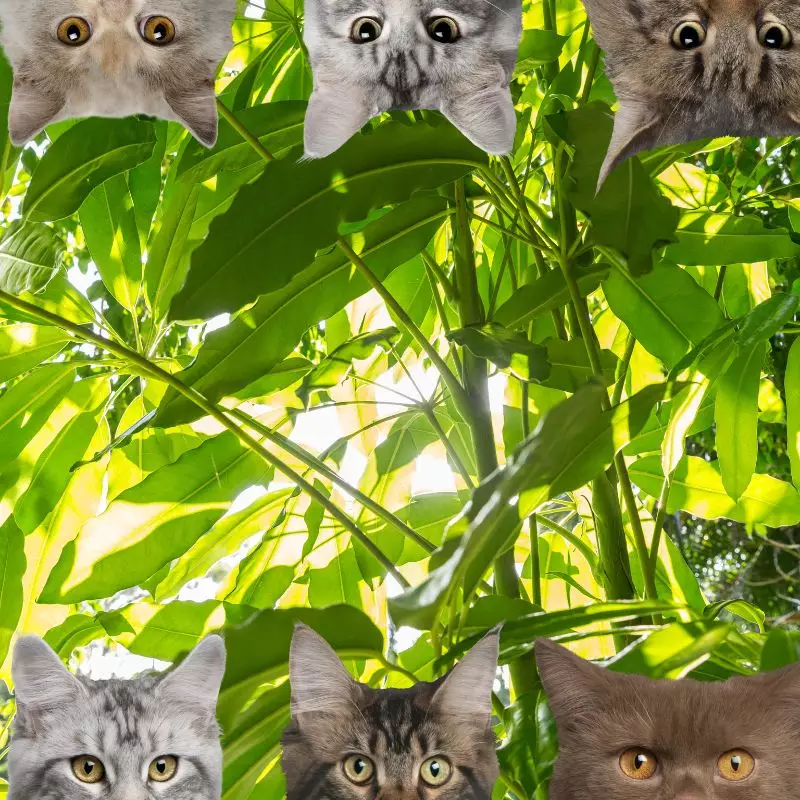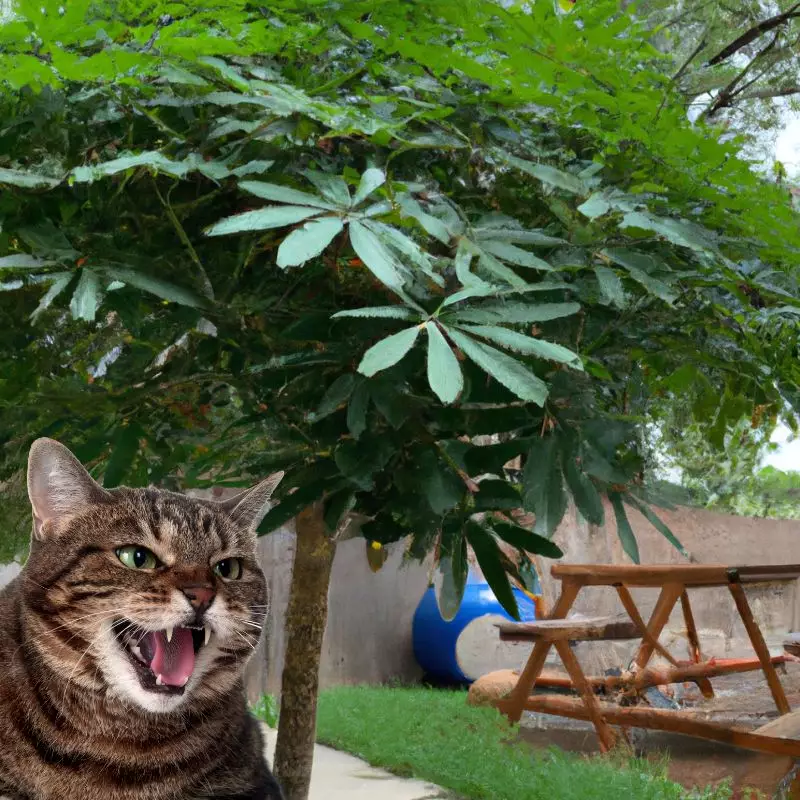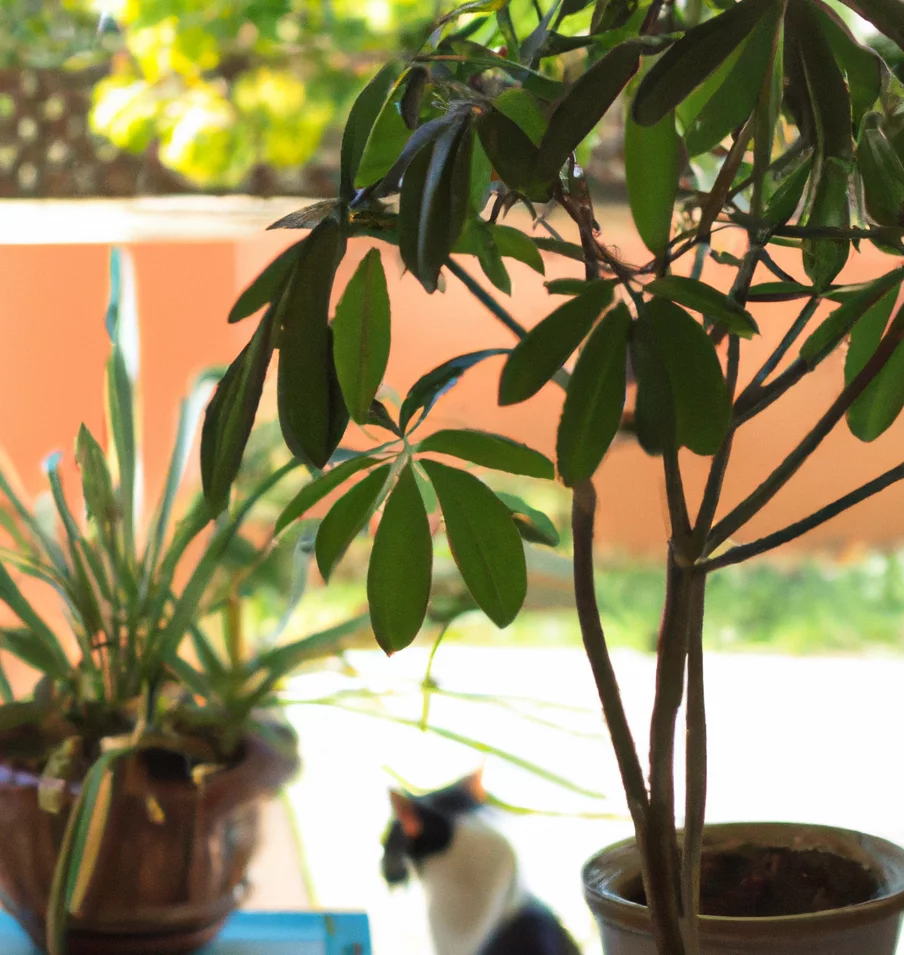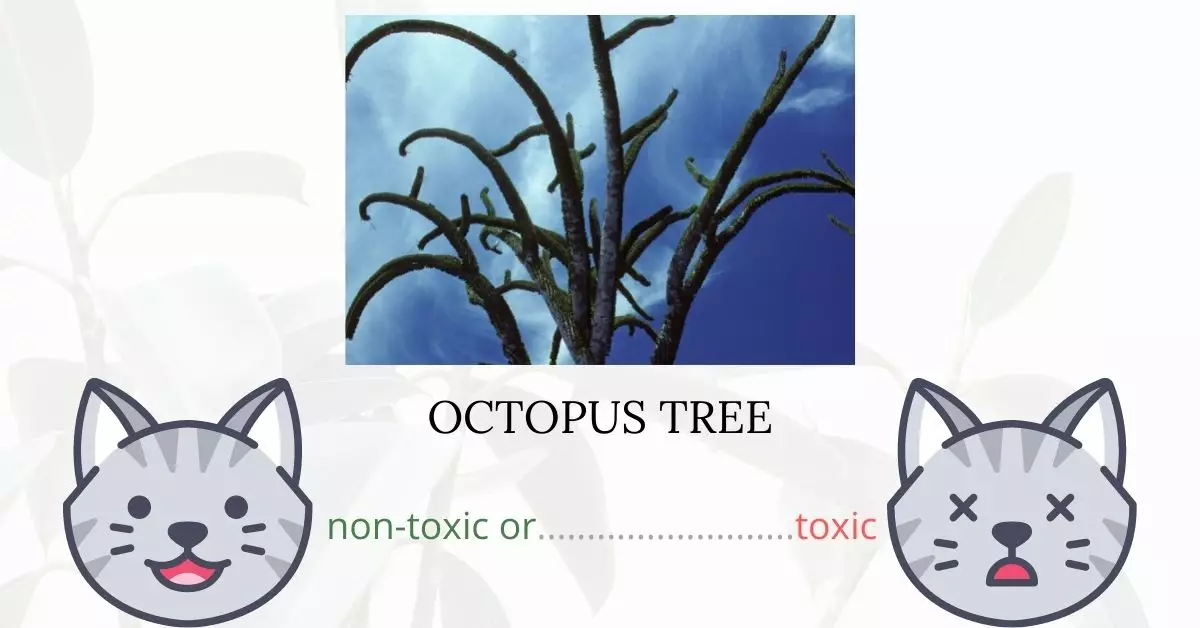Yes, the Octopus Tree is mildly toxic to cats. It contains saponins, insoluble oxalates, and terpenoids. While these natural chemicals are produced by the tree primarily to deter fungi and insects, they can irritate a cat’s digestive system. While the inherent bitterness of the plant often makes it unpalatable to cats, any feline that does consume Octopus Tree foliage should be observed for signs of discomfort, though fatalities from this toxicity are relatively rare.
This article was crafted in collaboration with a team of experienced DVMs (doctors of veterinary medicine). Their invaluable insights ensure that our readers receive accurate and up-to-date information on the potential risks associated with various plants, in this case, the Octopus Tree. Additionally, our findings are corroborated by research from high-authority sources such as the ASPCA and PetMD.
Clinical Signs of Octopus Tree Poisoning in Cats

If a cat has come into contact with, smelled, or ingested parts of the Octopus Tree, it may display a range of clinical signs resulting from the toxic compounds present in the plant:
- Ataxia: This refers to a loss of control over bodily movements. It can be caused by the ingestion of terpenoids found in the Octopus Tree, which can affect the nervous system of cats.
- Diarrhea: The presence of saponins in the Octopus Tree can irritate the cat’s digestive system, leading to diarrhea as the body attempts to expel the toxic substance.
- Depression: Terpenoids, once again, may influence the cat’s mood and energy levels. If a cat seems unusually lethargic or unresponsive, it might be displaying signs of depression due to the toxin’s effects on its central nervous system.
- Loss of Appetite: The bitterness caused by the saponins makes the Octopus Tree unpalatable. If a cat ingests it, the resulting gastrointestinal discomfort can lead to a decreased desire to eat.
- Low White Blood Cell Count: While not immediately observable to the naked eye, the toxic compounds in the Octopus Tree may affect a cat’s immune response. A drop in white blood cells can be indicative of the body’s reduced ability to fight off infections.
- Vomiting: As with diarrhea, vomiting can be the body’s way of trying to expel the toxic compounds it has ingested. Both saponins and insoluble oxalates in the Octopus Tree can irritate the stomach lining, leading to nausea and potential vomiting.
Cat owners should be vigilant and monitor their pets for any of these symptoms if they suspect their cat has come into contact with an Octopus Tree. Immediate veterinary care is advised if any of these symptoms manifest.
First Aid and Treatment of Octopus Tree Poisoning in Cats

The treatment for octopus tree poisoning in cats is to remove the plant from the feline’s body to avoid additional ingestion and to get rid of the toxins. To urge the feline to vomit and remove undigested octopus tree material from the cat’s upper digestive system, an emetic medicine will most likely be given by the veterinarian. If your cat has not vomited, the veterinarian may provide activated charcoal to bind with the harmful substance and prevent further absorption of the plant compounds by the body.
Medications such as Kapectolin and Sucralfate may be given to your cat as needed. Other medications may also be prescribed depending on the condition.
Recovery from Octopus Tree Poisoning in Cats

The outlook for cats poisoned by octopus trees is often good to excellent. Most cats will start to improve after an hour of treatment and will recover completely within 24 hours. The sooner the cat received treatment, the higher the chances of recovery.
Prevention of Octopus Tree Poisoning in Cats
It’s a good idea to get to know the plants that thrive in your yard and area. Investigate the plants that are poisonous to cats as a cat owner. It’s also safer to keep your cats indoors so they don’t come into contact with harmful plants outside.
If you love plants but have cats at home, check out these lists:





